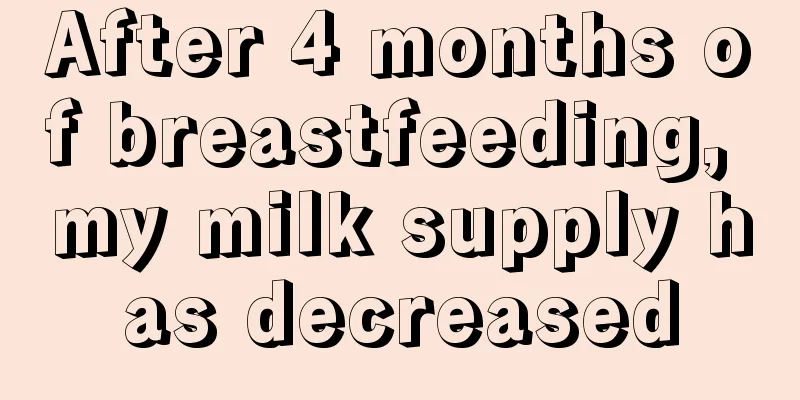What should I do if my period is short?

|
A large part of women's physical health is affected by physiological phenomena, among which menstruation has the greatest impact, also known as period. This is a cyclical manifestation of the female reproductive system and is very important for female fertility. Different women have different manifestations in their menstrual cycles. For example, some women have very short menstrual cycles. Let’s take a look at what to do if your menstrual cycle is short? For example, common mood swings disrupt women's menstrual cycles. Please see the following for details: 1. Caused by neuroendocrine dysfunction: mainly due to unstable or defective function of the lower hindbrain-stomach-ovary axis, that is, menstrual disease. 2. Caused by organic diseases or drugs, including local inflammation, tumors and developmental abnormalities, malnutrition of reproductive organs; intracranial diseases; other endocrine dysfunctions such as thyroid and adrenal cortex dysfunction, diabetes, Sheehan's disease, liver diseases; blood diseases, etc. Menstrual irregularities may occur in women who use drugs to treat mental illnesses, endocrine preparations, or intrauterine devices for contraception. Certain occupations, such as long-distance runners, are prone to amenorrhea. In addition, some abnormal bleeding during pregnancy is often mistaken for menstrual irregularities. The normal menstrual cycle of women is generally 28-30 days. The length of the cycle varies from person to person, but a menstrual cycle shorter than 21 days should be considered an abnormal short menstrual cycle. A menstrual cycle of less than 25 days is called a short menstrual cycle; a menstrual cycle of less than 20 days is called frequent menstruation. Short menstrual cycles and frequent menstruation are different stages of the same disease. Common causes include: ① Luteal phase insufficiency: due to the shortening of the relatively fixed luteal phase, the menstrual cycle becomes shorter. This disease often occurs during the childbearing age. ② Dysfunctional uterine bleeding during puberty: This is because the hypothalamus-pituitary-ovarian function is not fully developed; ③ Dysfunctional uterine bleeding during menopause: caused by ovarian dysfunction; ④Poor ovarian reserve function: mostly occurs in women of childbearing age after 35 years old; ⑤ Some women with heavy bleeding during ovulation may also experience frequent menstruation; At the same time: Severe uterine fibroids may cause heavy menstrual flow, frequent menstruation or shortened menstrual cycles. You can go to the hospital for a check-up, identify the cause, and then take medication under the guidance of a doctor. |
<<: Can pregnant women hold babies?
>>: Can I perm my hair when I have my period?
Recommend
Will follicular cysts go away naturally?
Follicular cyst is a relatively common female phy...
Is rhinitis a minor disease? These hazards can affect your health!
As the weather turns cooler, the air becomes dry ...
What should you do after sunburn?
What should I do after my skin gets sunburned? Ca...
Is 1.0cm of endometrium normal?
Endometrial thickness is very common, and the adv...
"One horse to calm asthma"! Who says asthma patients can't exercise? Here is the secret to "breathing freely"
Mr. Zhang, 28, is an outdoor cycling enthusiast a...
Moyamoya disease is a rare cerebrovascular disease. Is there any specific medicine to treat it?
Recently, a patient came to the outpatient clinic...
What should I do if I have severe hair loss after giving birth?
For women who have given birth, hair loss is a te...
Do you know the reason why the vagina is white?
The color of the vagina determines its health. Th...
【Tang Medical Science】Precautions for Ultrasound Examination
The main purpose of physical examination is to en...
Is shrimp paste nutritious? What to do if shrimp paste has a fishy smell
The main raw material of shrimp paste is shrimp m...
Why do you gain weight during ovulation?
As we all know, the ovulation period is a very im...
Are pickled pepper chicken feet nutritious? How to choose pickled pepper chicken feet
Pickled pepper chicken feet is a long-standing sn...
What are the consequences of crying during menstruation?
It is best for ladies not to get angry, cry or lo...
Eight foods to lower blood sugar in pregnant women
As the saying goes, prevention is better than cur...









